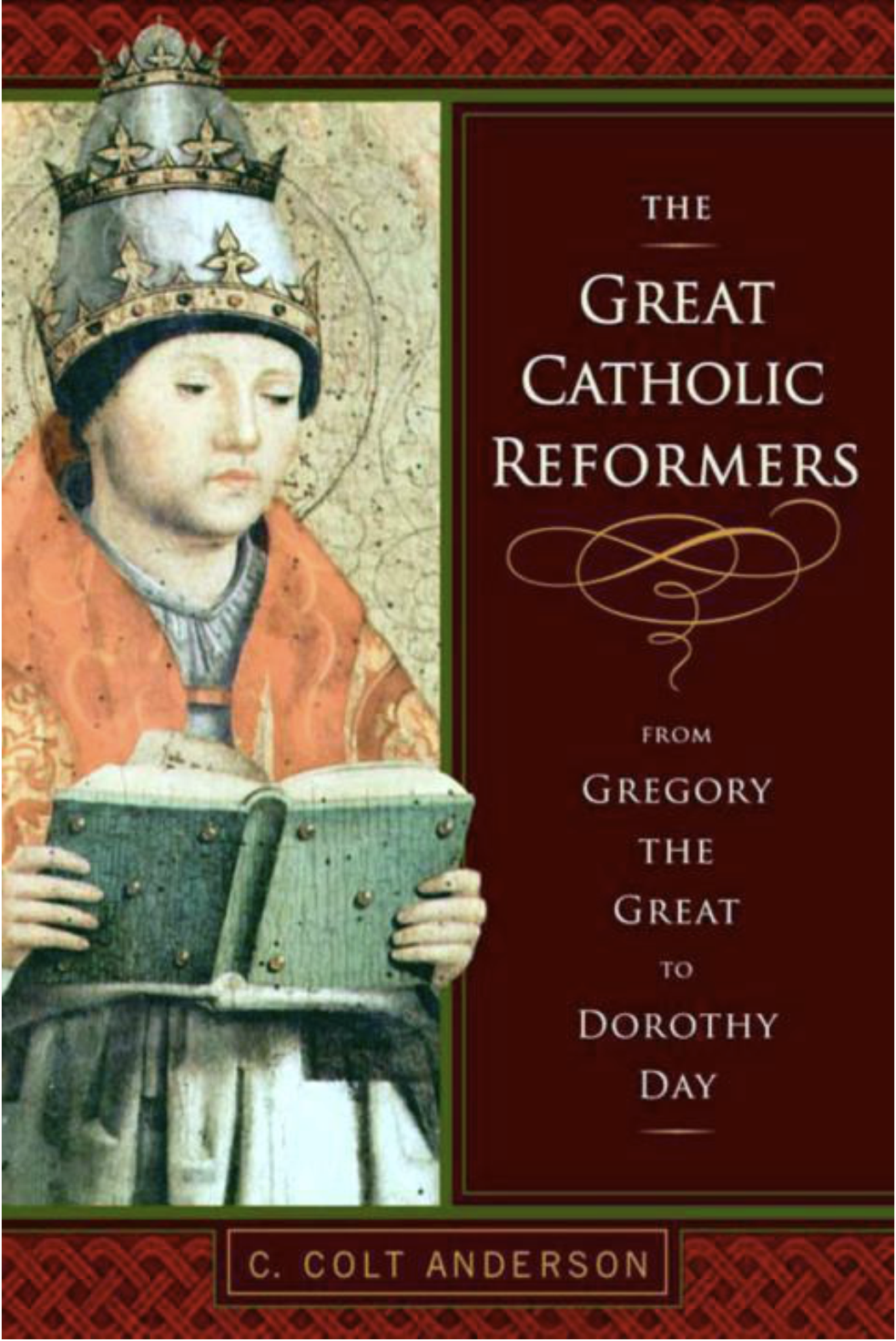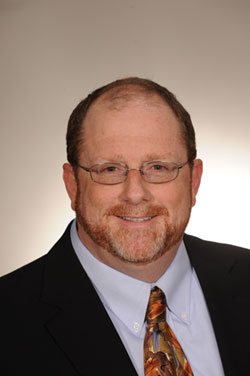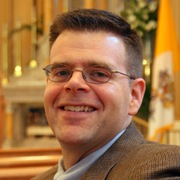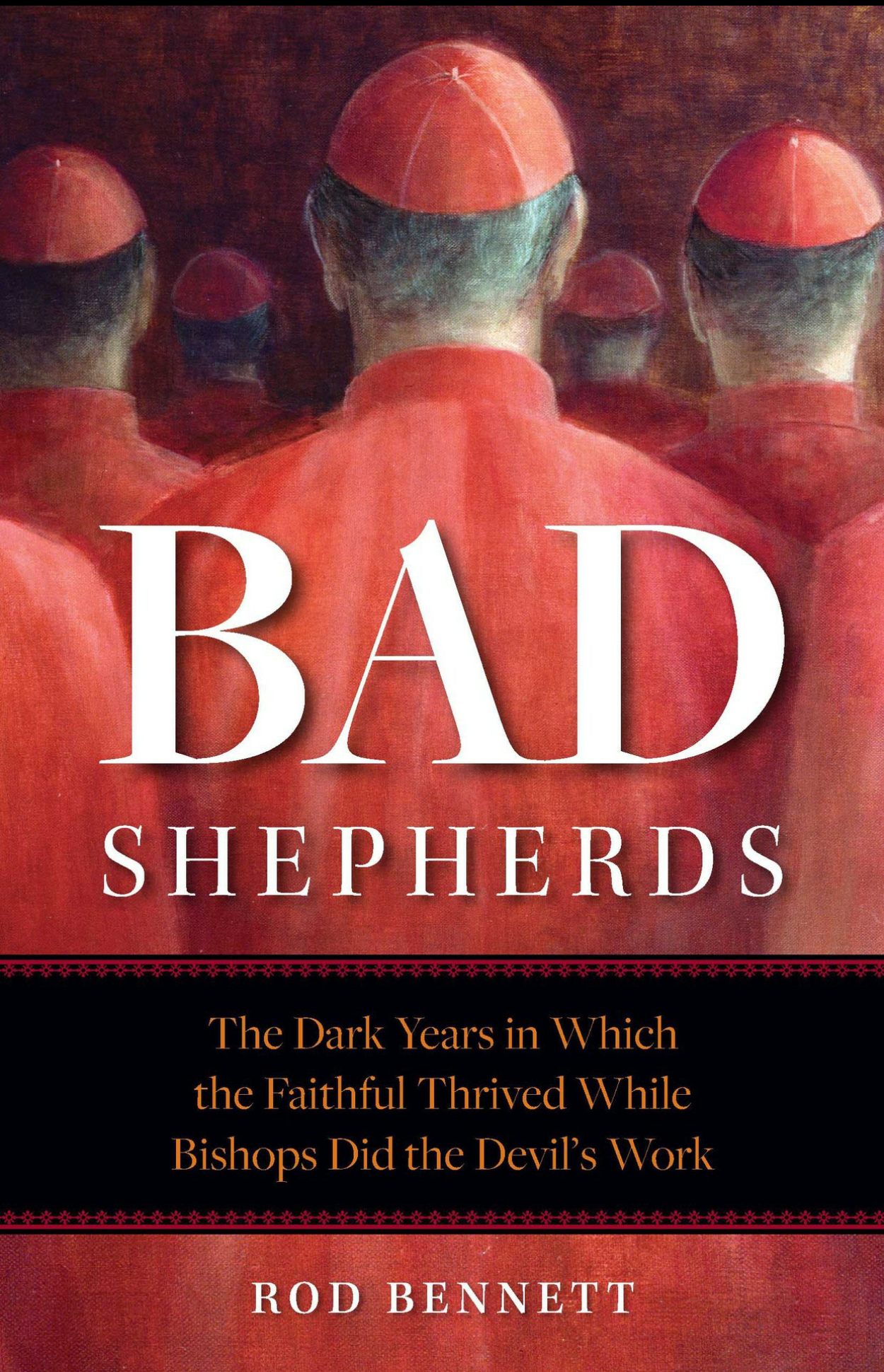


-from Anderson, C. Colt, Ph.D.. The Great Catholic Reformers: From Gregory the Great to Dorothy Day (Kindle Locations 1808-1816,1937-2040). Kindle Edition.
“Wearing a paper crown painted with three horrible devils about to greedily tear a soul to pieces and inscribed with the words, “This is a heresiarch,” the rector of the University of Prague was led to the stake on July 6, 1415. During his time as rector, Jan Hus had spearheaded the Czech reform movement. As he was stripped of his clothes and chained, Hus reportedly said, “The Lord Jesus Christ, my Redeemer and Savior, was bound by a harder and heavier chain. And I, a miserable wretch, am not ashamed to bear being bound by this one.”‘ After they had piled the wood up to his chin and lit the fire, Hus proclaimed that he had always been a faithful Catholic adhering to Scripture and Tradition. As we shall see, his claims of innocence were certain evidence of his guilt under the peculiar logic employed by the Inquisition.
Having affirmed his faithfulness, Hus began to sing, “Christ, you are the Son of the living God, have mercy on us; Christ, you are the Son of God, have mercy on me…” until the flames blew into his face. Peter of Mladonovice, an eyewitness to the event and a supporter of Hus, reported that Hus continued to move his lips in prayer though he could produce no sound. After the fire died down, the soldiers broke his bones and found his heart, which had not been fully consumed. They skewered his heart with a spit, rebuilt the fire, and reduced Hus’s heart and bones to ash….
Hus had all the charm and tact of an outraged goose. Since Hus means goose in Czech, his enemies made sport of him as the “Bohemian Goose.” Regardless of his lack of political acumen, Hus was a good theologian who was deeply committed to reform on a local level. He was not the type of man who would try to solve an international crisis like the Great Schism, though he did consider the implications of schism in his more academic writings.
Hus was five years old when the Great Schism began. He decided early on to pursue a clerical career because it afforded him an opportunity to escape poverty, which was a motivation that he was ashamed of later in life. The clerical establishment in Prague was already undergoing reform prior to the Great Schism. The struggles between the reformers and their opponents were formative for the young cleric.
Emperor Charles IV (1316-78), who was also king of the Bohemians, brought reformers to Prague to address the deplorable conditions in the 1360s. Charles had studied under Pierre Roger, who became Pope Clement VI (1342-52). He was a pious and knowledgeable ruler who cared about the spiritual lives of his subjects. Conrad Waldhauser, a famous Augustinian Canon, was recruited to clean up the situation. Waldhauser started a preaching campaign that brought the people back to Masses and he insisted on the moral reform of the people and the clergy. Almost immediately the Dominicans brought charges against the reformer for exposing the faults of the clergy among other things, but Waldhauser was able to clear himself in Rome.
What were the conditions in Bohemia at the time? Most of the priests who held the best offices were Germans. The Czech clergy, who were systemically excluded from the better schools, largely held rural benefices and tended to have substandard educations. Many Czech priests were keeping concubines, had problems with alcohol, and were using their positions to extort and swindle people out of their property. Prostitution, alcoholism, gambling, and violence were major problems facing the people of Bohemia.
The reformers began a series of initiatives to turn things around. More Czechs like Jan Hits were afforded an opportunity to study at the University of Prague. There was an effort to see to it that the Czech clergy would receive some of the better positions in the Prague diocese. As one might imagine, the policy embittered the German clergy in Bohemia. Finally, there were innovations in the liturgy that helped to spark a religious revival in Bohemia. The clergy began to preach in the language of the people, to incorporate folk songs that people could sing into the liturgy, and to provide people with vernacular Bibles. Special chapels, like the Bethlehem Chapel in Prague, were set up for vernacular preaching.
One of Charles’s last acts was to see to it that he had a reformer, Jan of Jenstejn, installed as archbishop of Prague. Archbishop Jan (1378-96) ordained Hus. When Hus was twenty, Archbishop Jan came into conflict with the emperor of the Holy Roman Empire, Wenceslas IV (r. 1378-1419), who was Charles IV’s son. Unlike his father, Wenceslas was neither pious nor particularly knowledgeable. Wenceslas became emperor and king of Bohemia at the age of seventeen. His reputation was that of a vain and impulsive playboy. He was so disliked that there was an attempt to assassinate him in 1393. This was also the period when he decided to wage war on Archbishop Jan.
When one of Wenceslas’s administrators was excommunicated by Archbishop Jan in 1393, the emperor retaliated by dividing the archdiocese from a territory that was going to have both a new monastery and bishopric. By claiming these benefices, Wenceslas could sell them to the highest bidder and keep the money for himself; but the archbishop refused to recognize the legitimacy of the move and installed a new prior in the monastery before the emperor could act. Wenceslas was furious and had four principal officials of the archdiocese tortured in response. One official died from the torture.
Shocked by the audacity of Wenceslas, Archbishop Jan appealed to the Roman pope, Boniface IX (1389-1404). Boniface refused to hear the charges against the emperor. The Roman pope was afraid that he might drive the emperor to change his allegiance to the Avignon pope by disciplining him. Disillusioned by the pope’s refusal to protect the clergy of Bohemia from a tyrant, Archbishop Jan resigned his office in protest in 1396, which was the same year that Hus received his MA degree. Archbishop Zbynek, who succeeded Jan of Jenstejn, was much less scrupulous from the outset. He scandalized his clergy by buying his office.
The reformers had challenges within the University of Prague as well. The university was dominated by the German faculty. The Germans were solidly in the philosophical camp of nominalism, so the Bohemians chose to adhere to a strict realist philosophy. Due to the moral rigorism and realist commitments of the Bohemian clergy, they came to appreciate the works of the English reformer John Wyclif (1324-84). As the works of Wyclif came under attack, the Czechs found themselves defending his writings against the German theologians. Wyclif had gained symbolic value for the Czech reformers, and Hus can be seen as trying to salvage as much as he could from the English theologian as part of his polemics with the anti-reformers. This was, to say the least, something of a strategic and rhetorical blunder.
Before the controversy over Wyclif broke out, Hus grew famous as a fiery preacher. By 1402 he had been named as the rector and preacher of the Bethlehem Chapel, which was seen as the center of the reform movement. He preached some three thousand sermons in the course of his career. One of the favorite themes in his early sermons was that only faith formed in love, or faith expressed in works of charity, is saving faith.’ In 1405 and again in 1407, Hus was invited to preach to the clergy. On both occasions he emphasized the duties of the clergy and denounced clerical impurity.28 While he used very strong language on these occasions, he was not denouncing the clergy to the laity. Even so, his enemies remembered these sermons and used them against him.
Since 1403 the German masters at the university had been attacking the Czech masters by charging them with the heresy of Wyclifism, which was a vague accusation because it associated the Czech clergy with a series of disparate statements extracted from the writings of John Wyclif. The charges presented against the reformers did not have much effect initially. One reason was that the teachings of Wyclif had not ever been condemned by a council. Twenty-four of Wyclif’s propositions had been condemned by a synod in London in 1382, but this does not mean that he had the status of a heretic. It was common for a theologian to have some points that were seen as erroneous and still be seen as a valuable source on other issues. When the German masters at the University of Prague expanded the suspect propositions to forty-five, it still only represented forty-five statements out of volumes of work.
The anti-reformers at the university focused the debate on eucharistic theology. Hus’s opponents knew that Wyclif’s denial of the doctrine of transubstantiation was in clear opposition to defined doctrine. The German masters wove several propositions important to the Czech reform movement into a list that included Wyclif’s most clearly heretical statements. The strategy worked. Though Hus would eventually defend only five of Wyclif’s articles as having an orthodox meaning, his opponents were able to convince people that he had denied transubstantiation. Events in 1408 pushed this dispute out of the university and onto the stage of international affairs.
After several years of efforts, the German masters at the University of Prague had convinced the Roman pope, Gregory XII (1406-15), that there were problems with heresy in Bohemia. King Wenceslas, who had been deposed as emperor in 1400, was anxious to satisfy Gregory XII that he had purged the land of any heresy. Under pressure from the king, Archbishop Zbynek decided to move against the reformers. Hus was incensed and began to preach more publicly about heresy, simony, and the moral faults of the unreformed clergy. By September 1409, a group of clergy led by the German Dominicans charged Hus with making severe and critical statements about simony and the lives of the clergy. Hus easily defended himself and wrote a treatise explaining why it is permissible to speak charitably against the vices of the clergy, De arguendo clero pro concione.
After the Council of Pisa elected Pope Alexander V in June 1409, the archbishop was under increasing pressure to withdraw his obedience from Pope Gregory XII. When Alexander V started proceedings against Zbynek, the archbishop crumbled and switched his allegiance. As a concession, Archbishop Zbynek managed to obtain a bull from Alexander in December that condemned the forty-five articles and that forbade all preaching outside of diocesan and monastic churches. This last provision was aimed at Hus and the Bethlehem Chapel. Hus defied the bull and continued to preach. Alexander V died before he could act against Hus.
Once again, international affairs would intrude upon the work of the Czech reformers. After King Ladislas of Naples drove the Pisan Pope John XXIII out of Rome in 1411, Pope John XXIII issued a bull authorizing the sale of indulgences to support a crusade against Ladislas. The bull stated:
And also by apostolic authority granted me, I absolve you from all sins, if you are truly contrite and confess them to God and me. If you cannot personally take up the project [of joining the crusade], but wish to bring a contribution according to your ability in compliance with my and the commissioner’s terms in defense and aid of the above-named project I grant and concede you the fullest remission of all your sins, including punishment and guilt.
In order to bring in the support of secular rulers who were already wavering in their commitments to the Pisan papacy, John XXIII also had a provision that would give them a percentage of the revenues.
When Hus decided to oppose the bull authorizing the sale of indulgences, he must have suspected he would alienate his last powerful supporter, King Wenceslas. Hus’s zeal impelled him to throw caution to the wind and to publicly oppose the bull. He preached against the indulgences and held public disputations. Hus argued that it was improper for Christians to give money for the purpose of killing other Christians and that the pope and the clergy should not be fighting with the material sword or engaging in warfare. He also opposed the way the bull seemed to imply that no repentance was necessary for forgiveness. His critiques were perfectly orthodox on these points.
Wenceslas was furious and enlisted the aid of Hus’s opponents at the University of Prague to draft a series of articles that forbade preaching against the indulgences. Hus defended his opposition to the indulgences by citing the provision in canon law that whatever is contrary to the law of Christ is heretical and should not be obeyed.32 In a letter written in May 1412, Hus explained his actions:
‘As to my not obeying the wrong commands of my superiors, while offering no resistance to power which is of the Lord God, that I have been taught by the scriptures, and above all by the word and deed of the apostles who, against the will of the chief priests preached our Lord Jesus Christ’ saying that “we ought to obey God rather than rather than people.’
Like Gerson, Hus cited Acts 5:29 to show that the commands of superiors must be subjected to God’s law as expressed in scripture. To save the people of Prague from an impending papal interdict, which would have suspended all sacramental ministry as long as the people supported Hus, he voluntarily went into exile.
While Hus was in exile from Prague, he began to write a small tract called The Six Errors. He said he wanted it to be a shield for the people from the errors that the unreformed clergy were teaching in order to deny any accountability for their crimes. Some of the clergy were arguing that since a priest creates God’s body at the Eucharist, then a priest is the Father of God. As such, even a priest in mortal sin, which would include actions like simony or murder, cannot be called a servant of the devil. The antireformers used the eucharistic service of the priesthood to claim that the worst priest is better than the most virtuous member of the laity. According to Hus, these insane priests went so far as to exalt themselves over the Virgin Mary because she only bore Christ once whereas they create God repeatedly during the Masses they celebrate.
The second error had to do with the teaching that one must believe or have faith in Mary, the saints, and the pope. Hus argued that one must only believe in God and in what has been revealed in scriptures. The focus of his argument was on the claim that people had to believe in the pope. After discussing the high devotion that is due to Mary, he explained that we do not have faith in Mary. If we do not have faith in Mary, he reasoned, then it does not seem appropriate to have faith in the pope. Hus pointed to two scriptural passages to justify his position. The first was Peter’s denial of Christ (Matt 26:69-75), which was both apostasy and perjury; and the second was Paul’s exhortation to the Corinthians to identify themselves as belonging to Jesus Christ rather than to Peter, Paul, or Apollos (1 Cor 1:11-17). The first example proved that Peter can be wrong and the second demonstrated we should only believe in Christ. To shore up his argument, Hus cited statements from both the Venerable Bede and Augustine to demonstrate his continuity with the church’s tradition.”
The third, fourth, and fifth errors all had to do with the authority of the clergy. The third error was that a priest forgives sins by his own will rather than acting as a minister proclaiming God’s forgiveness. This teaching would mean that a priest would have almost absolute power over his people’s eternal salvation as a matter of his own whims. The fourth error naturally flows from the third: One should always obey his or her ecclesiastical superiors. Hus responded by teaching the Czech people that they must evaluate the commands of their clergy in light of the teaching of the scriptures, which Hus used in a sense that would include traditional materials like Augustine or creeds. If a command violates the teaching of scripture, he advised people to disobey. The claim that the church can excommunicate people for any reason the authorities might give was the fifth error. Hus argued that the church could only excommunicate people for mortal sin.
The sixth error was at the heart of the various problems in the Bohemian clergy. Hus claimed that priests and bishops were preaching that they could legitimately buy and sell offices in the church. Others justified the idea that ecclesiastical offices could be granted or received for political purposes. Hus argued that the only reason for anyone to be admitted into holy orders was to serve the common good . In each case, he cited scriptural authorities and traditional theologians like Augustine and Gregory the Great. To provide a permanent shield against these errors for the laity, Hus inscribed The Six Errors in Czech on the walls of the Bethlehem Chapel.
The Six Errors represents the heart of Hus’s reform agenda. He was retrieving a reform theme that runs through the writings of Gregory the Great, Peter Damian, and Pope Gregory VII: The clergy are accountable to their neighbors as well as to God. The test was whether or not the clergy were following the law of Christ and serving the common good. Gerson’s reform agenda was fundamentally similar to Hus’s, but Hus was teaching laypeople to be discerning when it came to the lives and demands of the clergy. Hus’s denial that the clergy are more a part of the church than the laity, his rejection of the claim that priests and bishops should be regarded as holy simply because of their offices, his argument that tithes should be freewill offerings, and his defense of the idea that civil authorities may legitimately deprive bishops and priests of their possessions certainly set men like Jean Gerson against him.”
Other aspects of Hus’s theology were even more provocative for Gerson’s ecclesiastical colleagues. For example, they were offended by his argument that the church should not put heretics to death because Christ did not execute people. Instead, Hus advocated following the rule laid down in Matthew 18:15-17, which advised shunning those who sin against the community as publicans or Gentiles. He also cited the examples of Augustine and the fathers who willingly entered into discourse with heretics and schismatics in order to persuade them to reconcile themselves to the church. Gerson’s colleagues at the Council of Constance were also more than a little upset to find that Hus had compared the guilt of the clergymen who turned innocent people over to the secular arm for execution to the guilt of the priests, scribes, and Pharisees who turned Christ over to Pilate.”
In the end, the council members were not moved by Hus’s arguments, and the trial of Jan Hus was a foregone conclusion from the outset. Hus found himself inextricably caught in the peculiarities of inquisitorial logic. Even so, he could have saved himself but refused to do so. By all accounts, the council members were hoping Hus would recant so that they would not have to execute him. Perhaps Hus was naive, but he failed to see that the bishops and lower clergy were not willing to reform their behavior. The problems associated with the bishops and lower clergy, including their accountability to the laity, would only begin to be addressed after the cataclysmic events of the Protestant Reformation. The focus at Constance was resolving the Great Schism and preventing new schisms in the future, and anyone who stood in the way would be sacrificed for restoring unity.”

Love,
Matthew







